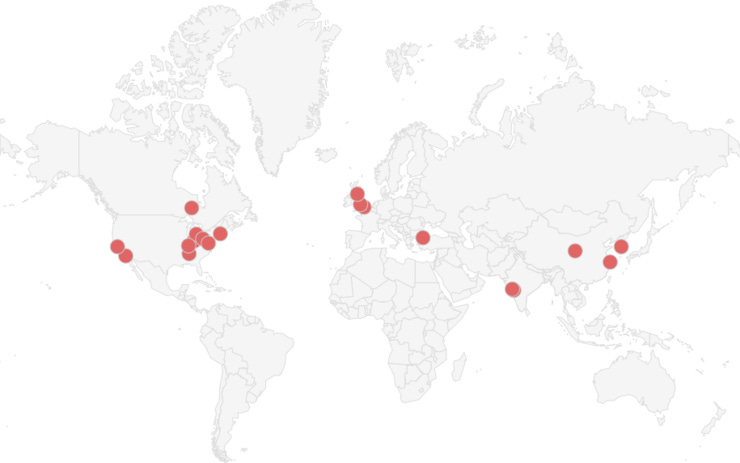Elm Analytics - Automotive Supply Chain Risk Digest #40 - November 10 - 16, 2017
CHANGE IN MANAGEMENT
GKN Plc has taken an unprecedented step and dropped their new CEO, Kevin Cummings, six weeks before he was due to start the job. GKN director Anne Stevens will instead become interim CEO at the end of the year.
Lear Corporation CEO Matt Simoncini has resigned after heading the company for the past six years. Ray Scott, current president of Lear's seating division, will replace him in February 2018.
INDUSTRY DIRECTIONS
A new industry survey suggests that some automotive suppliers are having trust issues with their OEM customers. The declining trust may be making suppliers increasingly wary of sharing technical ideas and innovations with their customers.
Fisker Automotive has filed patents for solid-state battery technology they say could enable a range of 500 miles and a charging time of just one minute. In spite of the patent, building these batteries to scale isn't yet possible and they also currently suffer from low rate capability and poor performance in cold temperatures.
LABOR DISPUTE
Workers at the Chinese-owned Fuyao Glass plant in Moraine, Ohio voted last week to reject joining the UAW by a vote of 886 to 441.
LITIGATION
A former employee from Tesla's Fremont, California plant is suing the automaker, calling the plant a "hotbed for racist behavior".
MERGERS, VENTURES, ACQUISITIONS
Chinese automaker Geely has acquired US flying car technology startup Terrafugia. With the support from Geely, Terrafugia is already working to triple their engineering staff to bring their first vehicle to market in 2019, with their first flying vehicle coming in 2023.
Hyundai will jointly develop all season tires with Michelin for future electric vehicle models. The tires will come equipped on Hyundai's next-generation EVs that will be released after 2020.
Volkswagen will spend $11.8b by 2025 to develop EVs and plug-in hybrids for the Chinese market. They are aiming to sell 400,000 new energy vehicles a year by 2020 and 1.5m a year by 2025.
PLANT CLOSING
Pittsburgh Glass Works will close its East Deer, PA plant by June 2018. The closure will affect nearly 200 workers.
PLANT OPENING
Asahi India Glass is starting production at its new float glass plant in Taloja, India. The plant has capacity to produce 500 tonnes of glass per day and will make glass for the architectural and automotive industries.
Johnson Controls spin-off company Adient has announced a new $30m automotive seating prototyping and testing facility to be built in Pune, India. The company says it will be the largest facility of its kind to ever be built in India and that it will open in late 2018.
Aleris has opened their new $400m aluminum auto body sheet production facility in Lewisport, Kentucky. The facility is their first in North America that is equipped with aluminum auto body sheet finishing capabilities.
Chinese EV automaker BYD Co. is opening a new plant to build electric trucks in Ontario, Canada. Their second plant in North America, the plant will initially make short-range vehicles such as garbage and delivery trucks before expanding later.
German Tier 1 supplier BOCAR will invest $115m into a new plant in Huntsville, Alabama. The plant will employ over 300 and start production around 2020.
PRODUCTION INCREASE
From January-October of this year, Turkish automobile production has increased by 27%. This increase puts Turkey's automotive production levels at an all-time high.
REGULATION
China will issue its first public road automated driving test license by June 2018.
Automakers in the UK are calling for the government to make a standstill agreement that will allow all current trading and customs arrangements to remain for the time being. They say that a hard Brexit would put significant pressure on their operations and that more time is needed to prepare.
A bipartisan group of over 70 members of the US House of Representatives are urging the Trump administration not to boost current production requirements on automotive vehicle content in the US. They say that doing so would eliminate the competitive advantages that the US auto industry currently receives under NAFTA.






